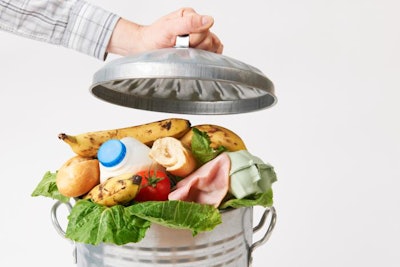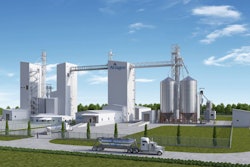
Many state ag groups say they are opposed to the bill, which is set to be heard by Senate committee
California farm groups, along with restaurant and grocer associations, say they oppose Assembly Bill 2959, which would change the way many livestock producers in the state obtain food byproducts for use as animal feed.
The California Farm Bureau, California Cattlemen’s Association, Western United Dairies, California Restaurant Association, California Grocers Association and California Retailers Association said they would work together to defeat the bill. The Association of California Egg Farmers, California Grain and Feed Association, biomass-based biodiesel producers and other associations and small business owners have also said they oppose the bill, which they say would change regulations and add costs to 1.8 million businesses.
The bill was introduced in February by Assemblymember Ian Calderon (D-Whittier) and will be heard in the Senate Environmental Quality Committee when the Senate reconvenes.
Changes to previous law
The California Integrated Waste Management Act of 1989, administered by the Department of Resources Recycling and Recovery, regulates the disposal, management and recycling of solid waste. It prohibits local governmental entities from exercising their authority with regard to the hauling of byproducts from the processing of food or beverages if certain conditions are met, including the condition that the byproducts originate from, among others, entities required to be registered for the manufacture, packing, or holding of any processed food in the state and certain entities exempt from that registration.
Assembly Bill 2959 would reauthorize those local governmental entities to exercise their authority if those byproducts originate from a retail or commercial establishment such as a supermarket, grocer, restaurant, or other retail food establishment. The bill would additionally prohibit those local governmental entities from exercising that authority if those byproducts originate from a winegrower or brandy manufacturer, as defined, under those same conditions, and would make other specified revisions to these provisions.
Reaction from groups opposed to the measure
“The purpose of California’s organic recycling goals is to ‘divert’ organic material going to landfills,” a group of ag, food and retail associations said in a letter addressed to committee chairman Sen. Ben Allen (D-Santa Monica). “Food processors, wineries and retail food establishments have historically sent these organic waste materials to livestock producers and feed suppliers to be managed in environmentally beneficial ways. For example, bakeries send material to dairy farmers that de-package the products and feed directly to livestock and restaurants, and grocers send vegetables and scraps to feed companies. These practices keep costs down and comply with the state’s waste management goals by keeping the material out of landfills and have a far better (greenhouse gas) emission profile.”
Taylor Roschen, policy advocate for the California Farm Bureau Federation, said in a statement that the novel coronavirus (COVID-19) pandemic creates even more reason to oppose the bill.
“In a time when agriculture’s limits have been tested by the COVID-19 global pandemic, it’s more important now than ever that the State ensure our communities have access to healthy, sustainable and abundant food and fiber,” the statement said. “We do this, in part, by sourcing livestock feed from readily available organic materials generated by food processors, packing houses, restaurants, bakeries and grocery stores. AB 2959 will remove access to some of these locations, disrupting relationships between byproduct producers and agriculturalists that have functioned efficiently for decades. Consequentially, livestock producers will have (to) depend more so on imported, and increasingly expensive feed, resulting in more greenhouse gas emissions and costs on California’s small businesses, farmers and ranchers.”














